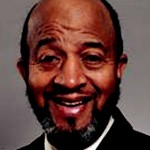Columbia moves slowly in embracing African-Americans | Guest Column
The release of new census data provides an opportunity to make an assessment of the black situation in Columbia.
The city’s black population is more than 12,200, about 11 percent of the total population. African- American-owned businesses amount to fewer than 1 percent of the total number. There also is a significant disparity between the achievement of black students and those of white students. (The school system states it is committed to addressing it.) Blacks are disproportionately arrested, fined and given harsh sentences. There is a police review committee, but attempts are being made to render it impotent.

There are many notable African-Americans from Columbia who became successful leaders in every kind of endeavor. Small businesses hire few African-Americans in Columbia. Most public- and private-sector businesses have a token minority (not necessary black) that they can show at the diversity breakfast. Rarely is an African-American elevated to any position if it depends on votes.
Still this is a big difference from the time when all hired positions for blacks were menial-level service positions. Many of my older African-American friends are quick to remind me that this is a slow but better trend.
Professionals from the South appear to be comfortable with the slow rate of change. Many of them are not likely to provide the level of advocacy that Columbia might get from former Columbians such as Bill Washington, vice president of Sprint; James Nunnally, administrator of many agencies in Kansas City; and Darlene Green, comptroller of St. Louis.
The actual black unemployment rate is more than 20 percent if black unemployment is twice the stated unemployment rate. We have just as many people who have dropped out of the counted ranks due to frustration with failed job searches. Many of these are mothers without the support of safety nets because of former President Bill Clinton’s failed welfare-to-work program. These people rely on support from those who are employed or underemployed or some kind of hustle. The land ownership in the central city by blacks is increasingly diminishing due to predatory businesses and black flight.
Meanwhile, we possess what I call “quiet storms” occurring in Columbia that ought to be celebrated.
In my estimation, one of the leaders in the quiet storm is the Columbia Public Library. It remains a model of what Columbia could be if it lived up to its progressive potential. The library provides a supportive learning environment and resource services evenly. St. Luke United Methodist Church has been quietly making itself, its pastors and congregation available to all who want to address relevant issues no matter who they are. The food pantries of Russell Chapel and Progressive Missionary Baptist Church have been providing food and clothing to those in need. Almeta Crayton distributed Christmas baskets from St. Paul A.M.E. Church.
The Alpha Kappa Alpha and Delta Sigma Theta sororities and the Minority Men’s Network provide service and scholarships in the community. The Royal Deuces and the 1st Ward Ambassadors are constantly working wherever they are needed.
Certainly Wynna Faye Elbert and Almeta Crayton are all over the place. Darrell Foster and Tyree Byndom have done a great job of assisting Wynna Faye on “Straight Talk” at KOPN. Foster is now running for the 1st Ward Council seat. Ellis Ingram and his wife have been quietly but effectively working with youth to encourage them in the arts and medical fields out of their own pockets for years.
Nat Stephens has organized the Mizzou Black Men’s Initiative into a dynamic group of future leaders. Charles and Carolyn Allen and the Kelly brothers quietly participate in significant community endeavors. There are other couples such as the Whitts, the Middletons, the Nunnallys, the Gordons and the Warrens who are all part of this quiet storm and who we are unaware of but who all make an impact on African-Americans in Columbia.
We should celebrate the efforts and achievement of these individuals and organizations as well as the spirit of those who inspired them. Still, the contributions are too few and less intense than what is needed.
We are not maximizing our full potential. We appear to be more reactive than proactive. Our token presence in conspicuous places is not utilized. Too many of these tokens hide from being responsive. We are capable of addressing our issues if we have the will. We must remember that the needs of the black community are not exclusive of the larger Columbia community. Addressing our issues will enhance Columbia and enable Columbia to reach its maximum potential.


